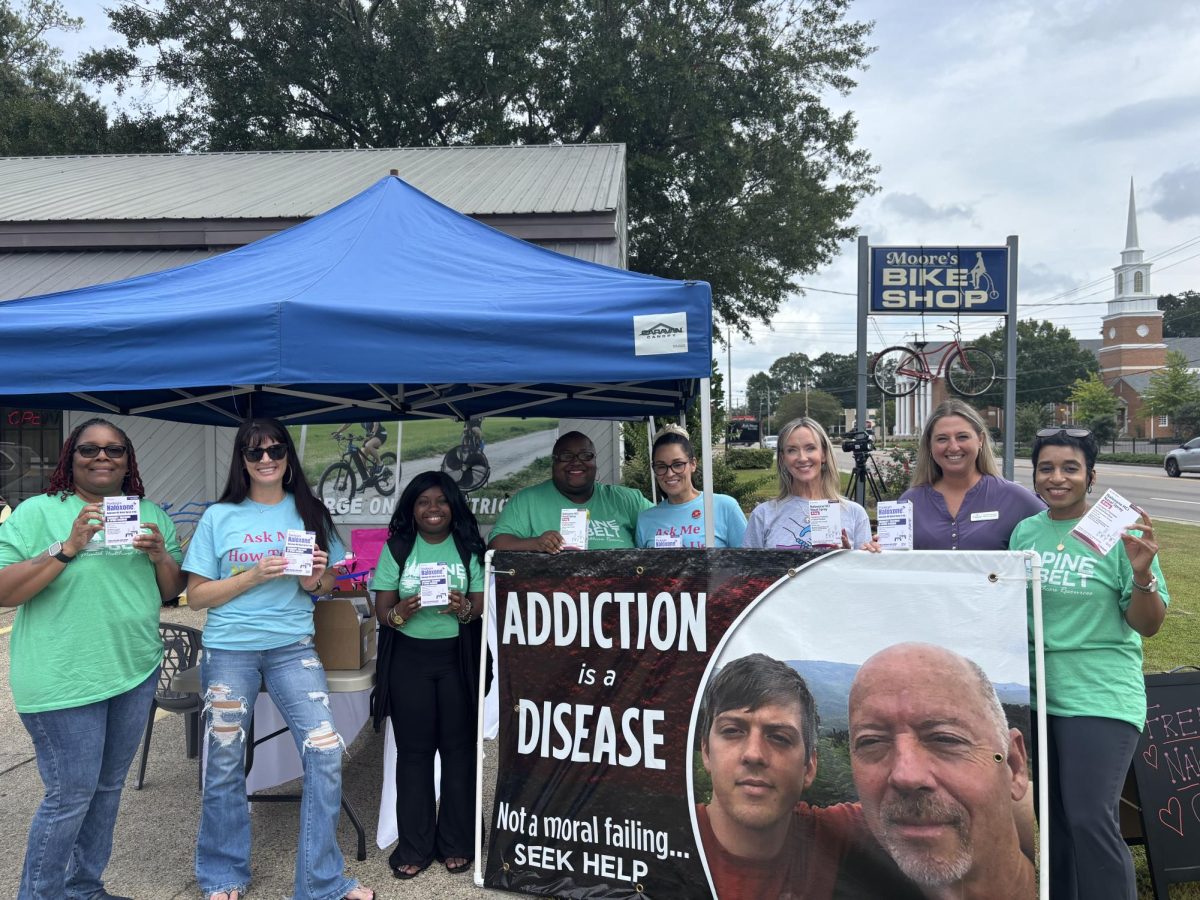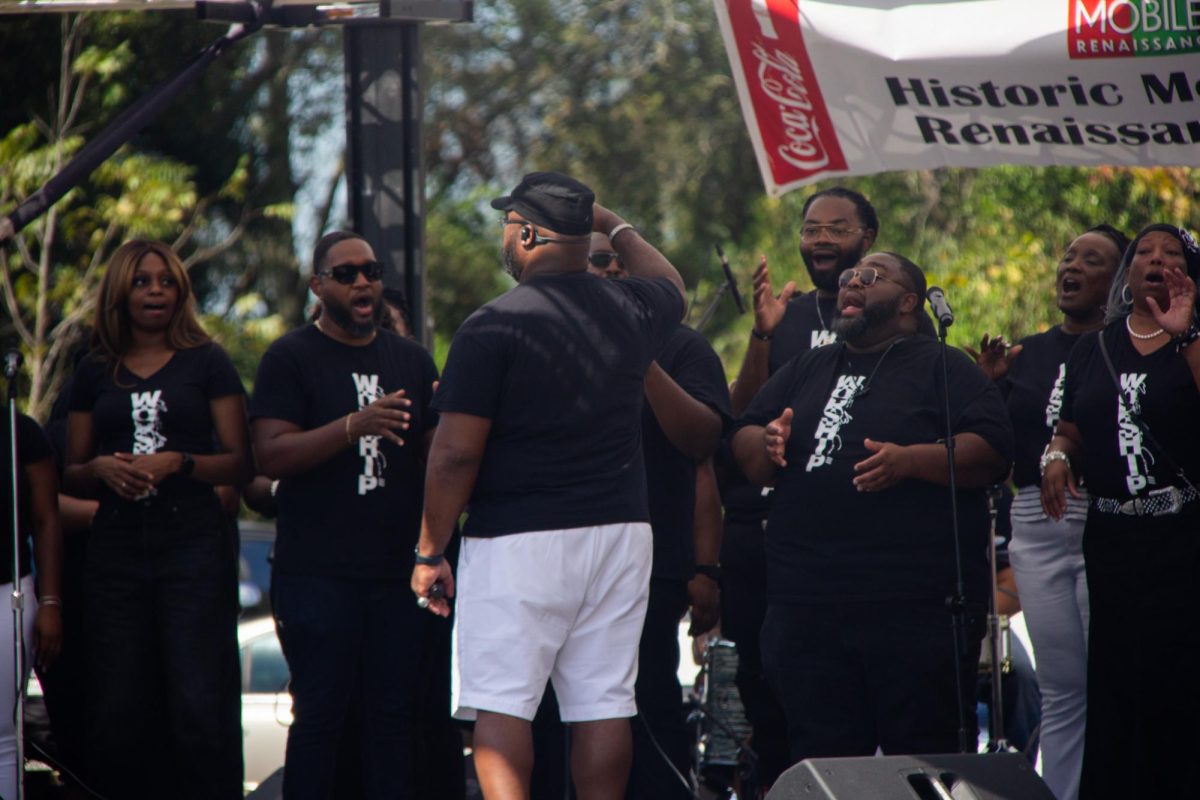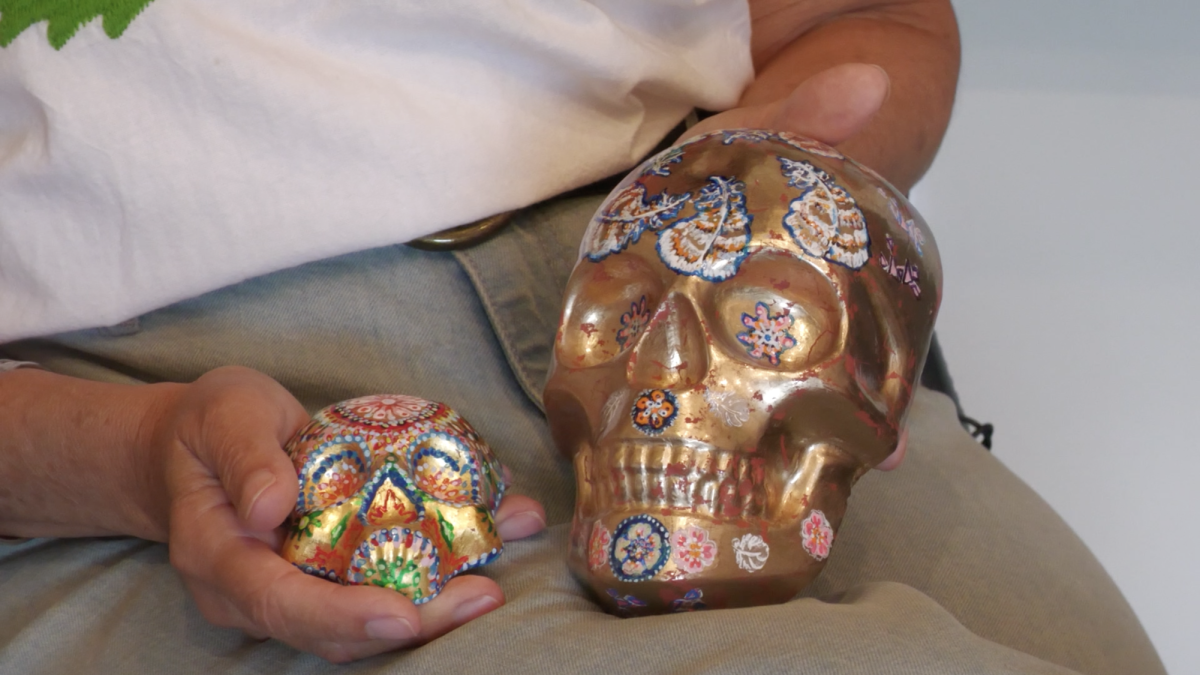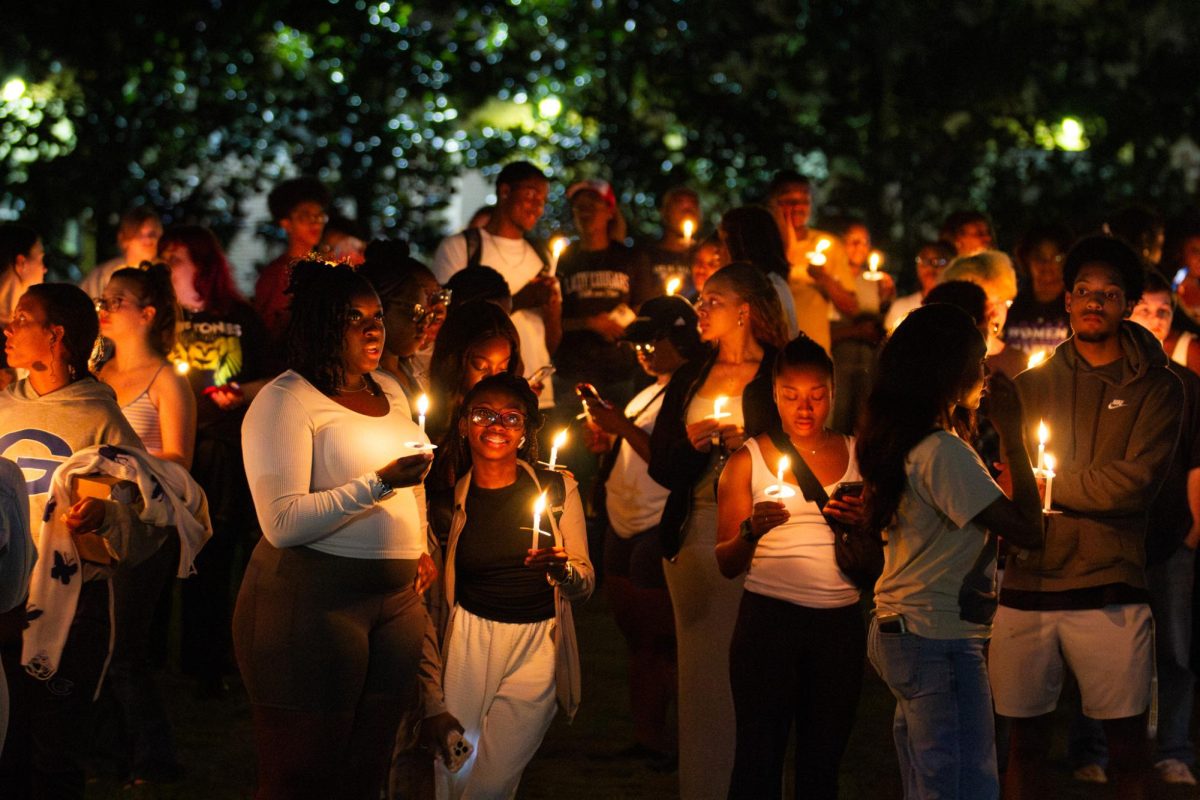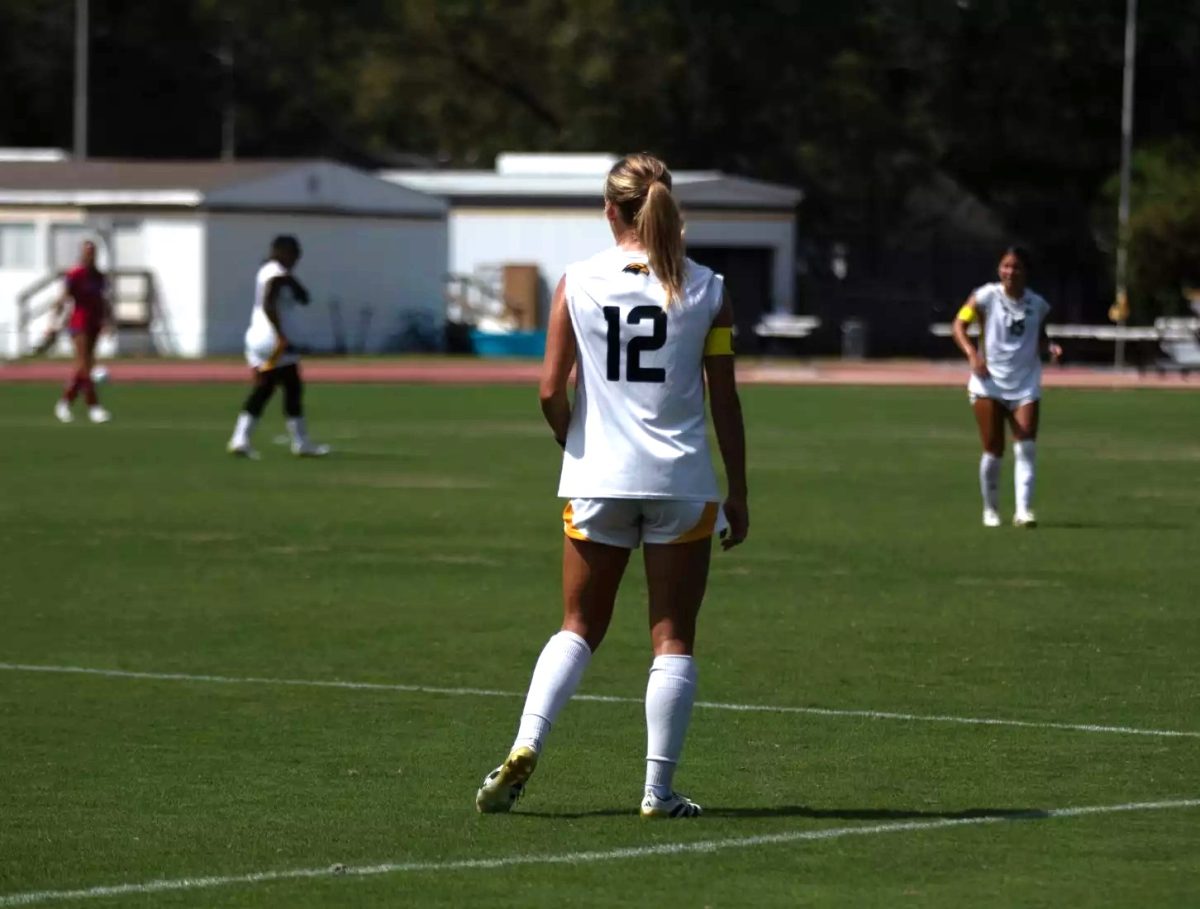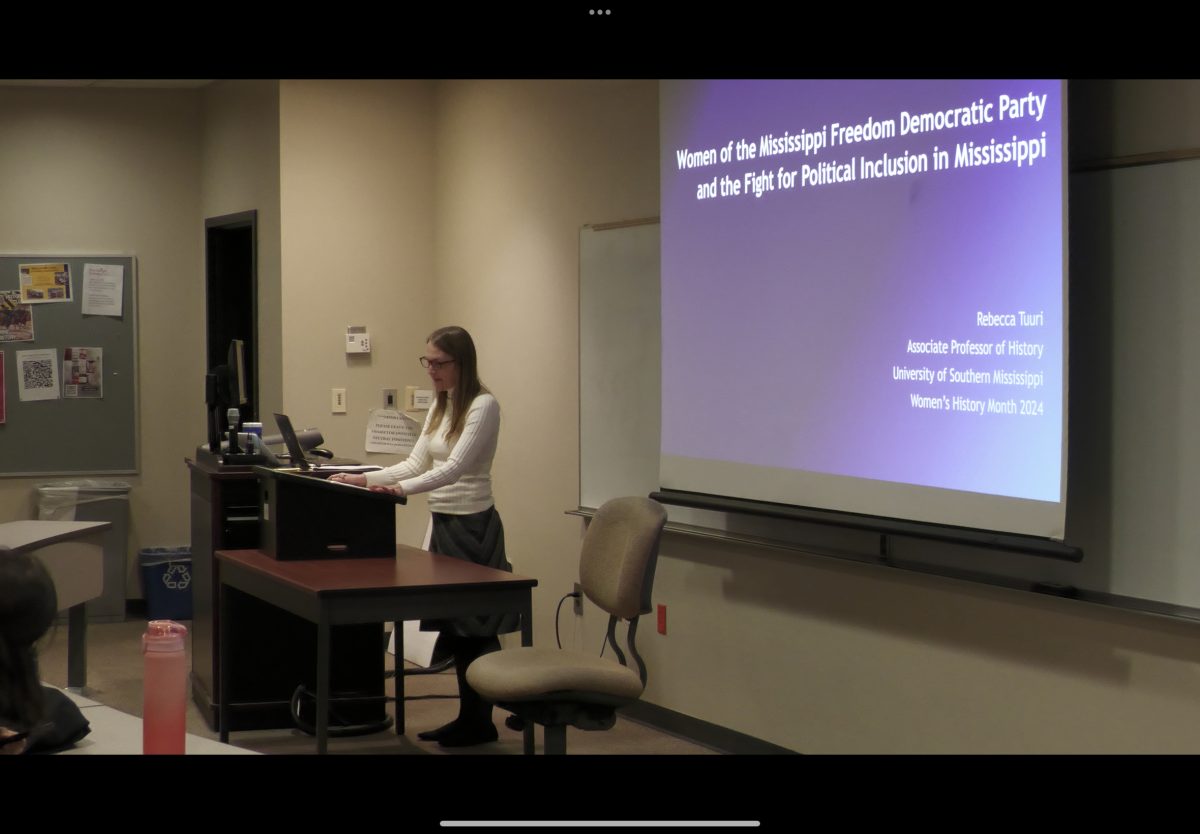In honor of Women’s History Month, the University of Southern Mississippi hosted a powerful panel titled “Feminism in the Deep South” on March 27th. The panel shed light on often overlooked chapters in the struggle for women’s rights and racial equality in Mississippi and the broader region.
Dr. Rebecca Tuuri, Associate Professor of History at USM, presented her research on “Women of the Mississippi Freedom Democratic Party and the Fight for Political Inclusion in Mississippi.” Her work examines the critical but underappreciated role women played in the MFDP’s efforts to challenge the racism and voter suppression of the segregationist Mississippi Democratic Party in the 1960s. By presenting figures like Fannie Lou Hamer and other women in MFDP, Dr. Tuuri historically analyzed MFDP and women’s roles in MFDP. Dr. Tuuri will also be releasing a book on this research.
Sarah Drivon, a graduate student in History at USM, shared her research entitled “AWS v. Penley: The Fight for Equal Campus Policies at USM.” Penley was one of many women discriminated against in USM and finally fought back against AWS. Her research explores the late 1970s legal battle against the university’s sexist housing policies that imposed strict curfews and dorm rules on female students that did not apply to males. After a long battle, consisting of petitions, coverage, and protests, the sexist housing policies were completely destroyed by the early 1980s.
Rounding out the panel was Emma Rawls, an honors undergraduate History student whose research was titled “Mobile’s Azalea Trail: White Women and the Lost Cause.” Rawls examined how this long-running Mobile tradition historically functioned as a way for elite white women to glorify the Confederacy and institutionalize racism through public performance and gatekeeping.
“For decades, the Azalea Trail Maids have been seen as celebrating a romanticized vision of the Old South, an almost romanticization of the Antebellum Period,” said Gracie Sullivan, a participant in the panel.”It’s very interesting to see different kinds of research happening right here at Southern Miss that talk about feminist issues.”
The lenses of intersectionality and power structures were crucial in analyzing complex dynamics that have too often been oversimplified or ignored entirely.
Dr. Tuuri emphasized that initiatives to amplify these under-told narratives remain vital.
“I think it’s really important to continue to study women’s history, recognize its value,” she said. “Not just for women to learn that history but also for all people, men as well. I urge all to read scholarship about it and not just go in with social media, although I will say that social media uplifts the stories of a lot of unknown people, and that is amazing. But, don’t stop there. I encourage you to go further and read some amazing historical research that’s out there right now. We’re experiencing a renaissance in terms of studying great works that are being written about Black women’s history.”
The “Feminism in the Deep South” panel provided a powerful reminder that the struggle for equity, inclusion, and human rights is ever-evolving, requiring an unflinching examination of uncomfortable truths, even in the Deep South.

